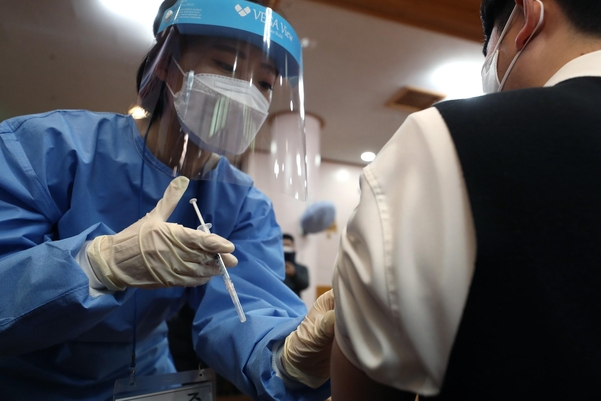Input 2021.04.12 07:38
According to the Corona 19 Vaccination Response Promotion Team on the day, the government will resume the AstraZeneca vaccination, which has been partially withheld or postponed since that day.

Previously, after vaccinating the AstraZeneca vaccine, especially in Europe, specific symptoms of blood clots were reported one after another. Accordingly, the promotion team withheld vaccination as a preventive measure, and finally decided to resume vaccination that day after expert discussion.
It is based on the opinions of experts that it is important to proceed with vaccination without disruption above all in a situation where the risk of Corona 19 continues. In particular, the fact that cases of’cerebral venous sinus thrombosis’ (CVST) and’visceral venous thrombosis’, which are rare thrombosis problems in Europe, have not yet occurred in Korea, also affected.
According to the promotion team, there were three reports of blood clots after vaccination in Korea as well, but two of them were not recognized for causality with the vaccine. In the other case, causality was acknowledged, but platelet reduction, a typical symptom of rare thrombosis, did not appear, so it did not fit the definition of a side effect case previously recognized by the European Medicines Agency (EMA).

However, there are concerns that the government’s decision will disrupt the vaccination plan. Of the 2.38 million people under the age of 65 among those who were vaccinated in April to June this year, 27% of those under the age of 30 were about 640,000. They will have to get a different vaccine, but a specific vaccination plan has not yet been confirmed. The day before, promotion manager Jung Eun-kyung said, “It is a situation that we need to prepare a complementary plan for what vaccines to be released and at what times, depending on the situation of vaccine supply and introduction.”
The only product that can fit them right now is the Pfizer vaccine, but the quantity is not enough. In addition, while major European countries such as Germany and France recommend AstraZeneca vaccination only to the elderly, such as 55, 60, and 65 years of age, there are voices of concern over the exclusion of vaccination being under the age of 30.
